Description
ABSTRACT
Outstanding Hire: A Simple Debt or Maritime Claim?
Joseph Mbadugha*
Classification of a claim as a simple debt or a maritime claim is important in determining whether it is the State or Federal High Court that has jurisdiction over such a claim. This article addresses the issue of classification of default payment or outstanding hire as a simple debt or a maritime claim; it argues that outstanding hire is a maritime claim and that the Supreme Court’s decision in Texaco Overseas (Nig.) Unltd v Pedmar (Nig.) Ltd1 is per incuriam. Also, this article contends that the English judicial decisions on outstanding hire are consistent with the provisions of Article 1(1)(d) & (e) of the International Convention for Unification of Certain Rules Relating to the Arrest of Sea-Going Ships 1952 (The Arrest Convention) which Nigeria and United Kingdom incorporated. It proffers recommendations on how best Nigeria can maintain and respect the international character of the Arrest Convention in interpreting her corresponding domestic statutory provisions in order to achieve the uniformity intended by the Convention.
INTRODUCTION
A maritime claim may be defined as a claim within the admiralty jurisdiction of the Federal High Court – a proprietary or a general maritime claim2 which must have arisen from or related to a ship.3 However, the International Convention for Unification of Certain Rules Relating to the Arrest of Sea-Going Ships 1952 (The Arrest Convention) described it as all the claims in relation to which a ship may be arrested under the Convention, while a simple debt claim may be defined as a non-maritime claim or a debt which would not give rise to a maritime claim or a claim arising from simple contract.4
Classification of a hire dispute as either a simple debt or a maritime claim is important, in the Nigerian context, in determining which court has jurisdiction to entertain any dispute arising therefrom. Jurisdiction of Nigerian courts are conferred by the Constitution particularly section 2515 with the resultant effect that maritime dispute is within the exclusive jurisdiction of the Federal High Court while simple contract is within the jurisdiction of the State High Court.6 The term “Hire” within the context of maritime law is the price paid for the use of, or for chartering a ship and it is payable throughout the charter period.7 Ships are used in carriage by sea. Carriage by sea is usually applicable in carriage of bulk and wet cargo as well as in international sale. International sale of goods may be said to be incomplete until the goods are delivered to the purchaser’s or consignee’s designated port. The only mechanism of carriage by sea is ship. A ship, used in carrying goods, may belong to the carrier or may be a chartered ship in the event of which a charter party exists.
* Principal, McCarthy Mbadugha & Co., Lagos. Visiting Professor of International Arbitration, Palacky University, Olomouc, Czech Republic. Former Visiting Professor, Nicholaus Copernicus University, Torun Poland and Vilnius University, Vilnius, Lithuania
- (2002) 13 NWLR (Pt 785) 526
- Admiralty Jurisdiction Act, CAP A5, Laws of the Federation of Nigeria, 2010, s 2
- Mobil Prod. (Nig.) Unltd v Ayeni (2010) 4 NWLR (Pt 1185) 586 at 605 606 paras g-b
- Chevron (Nig) Ltd. v Lonestar Drilling Nigeria Ltd. (2007) 16 NWLR (Pt 1059) 168 at 187 paras G – H
- 1999 Constitution (as amended), Laws of the Federation of Nigeria, CAP C23, 2010
- Petro Jessica Enterprises Ltd v Leventis Technical Co Ltd. (1992) 5 NWLR (Pt 244) 675
- Wilson, J.F., Carriage of Goods by Sea (5th edition, Pearson Education Ltd: Longman 2004) 86

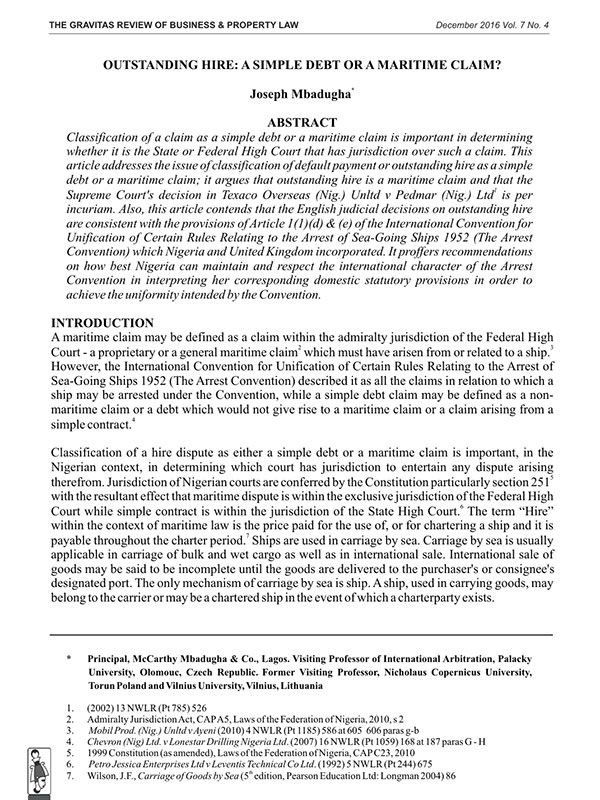
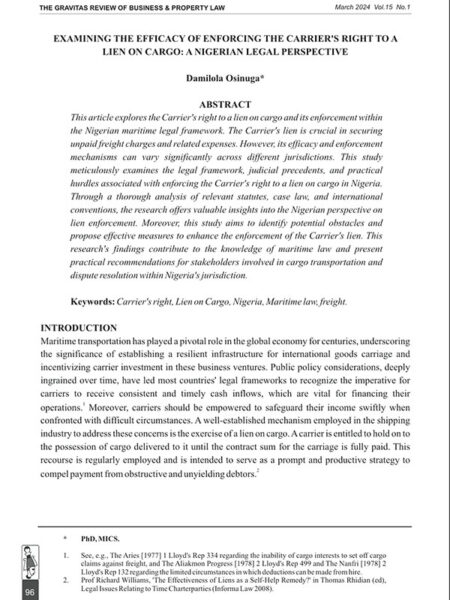
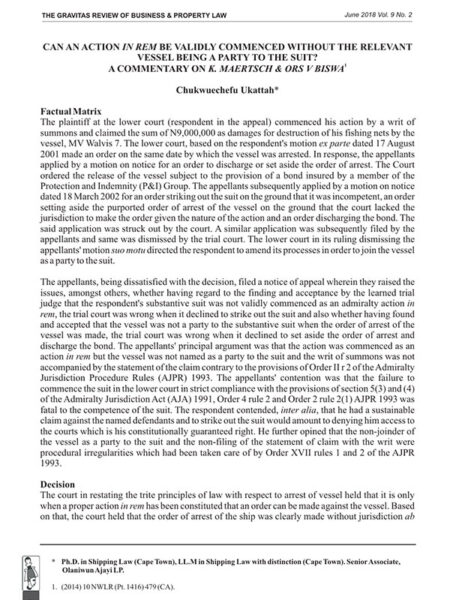
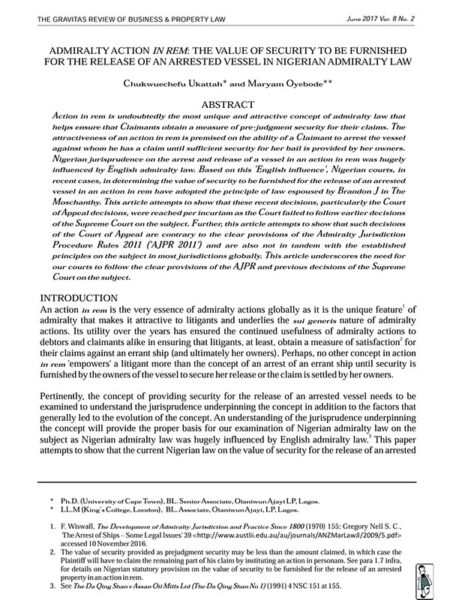
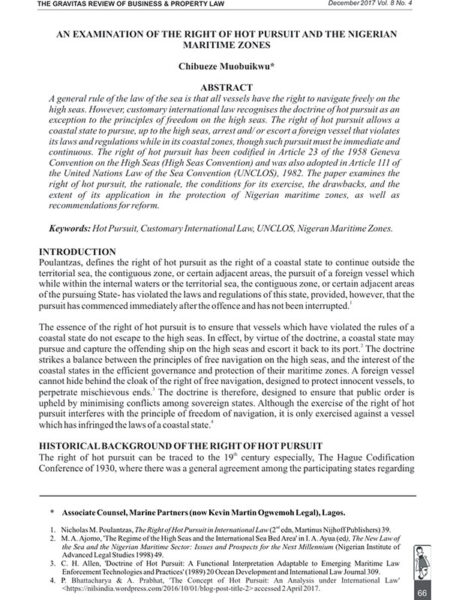


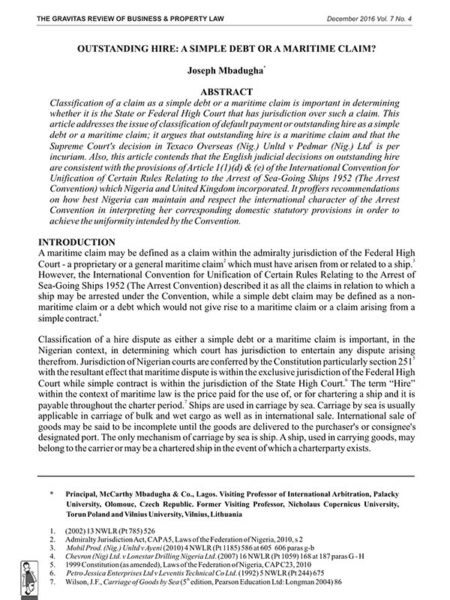
Reviews
There are no reviews yet.